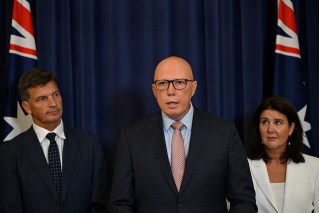Think the Robodebt fiasco is over? Here’s five reasons it’s not


The government has not repaired its robodebt damage, Madonna King writes. Photo: TND
Robodebt is the perfect example of a stale and out-of-touch government, and this week’s billion-dollar settlement of a huge class action raises more questions than answers.
But it is also a sterling reminder of what we have failed to learn through a bungled and illegal government move that has created havoc and heartache.
Just consider these steps that have unfolded over the past few years as the government has refused to admit wrongdoing, or shown genuine remorse.
Firstly, the decision to embark on the Robodebt program showed little thought and even less rigour.
There has certainly been no evidence that those issues that have risen, since the fiasco unfolded, were considered red flags in the lead up to it being launched.
We need a Royal Commission into #Robodebt. https://t.co/4J42RS57m4
— Bill Shorten (@billshortenmp) November 16, 2020
Secondly, the automation of a program that deals with humans who might be vulnerable defies what we should expect from a government that is either caring or in touch with the lives of those it represents.
Thirdly, a chunk of victims received their Robodebt letter on the eve of Christmas 2016.
Offices were shut, and they spent the holiday period in a state of panic. In any world, is that an appropriate course of action? And how would a public service, with any real understanding of people’s circumstances, plan such an untimely intervention?
Fourth, thousands of wrong recipients were hit up for repayments. How is this possibly the case, and where is the accountable and transparent investigation to ensure this is never repeated?
Fifth, taxpayers haven’t been able to recover debts owed because of the optics around it. That would simply highlight the government’s incompetence.
Just consider the amount of money involved. The Commonwealth agreed this week to pay out $112 million to 430,000 former welfare recipients as part of the $1.2 billion class action case.
This is why the Morrison Government won't hold anyone to account for robodebt.
Because it all comes back to Scott Morrison. pic.twitter.com/vFz1Rj7V29
— Anthony Albanese (@AlboMP) November 18, 2020
That $1.2 billion figure includes $721 million in debts the government announced it would pay back earlier this year. It also includes the agreement to drop $398 million in debts.
Each class action member will receive, on average, about $280 in compensation.
The reason the government has been able to brush this under the carpet is because the obvious victims are probably people it thinks don’t and won’t vote for it.
But we are all victims because we are paying the cost of the original overpayments, the failure to recover them, the cost of a badly run scheme and the cost of mopping up the mess.
No royal commission. No real apology. But more than anything else, it’s the government’s response to its own incompetence that is particularly breathtaking.
Who is responsible? No one, it appears.
And certainly not Minister Stuart Robert. But then again, this is the same Stuart Robert – who as assistant treasurer in 2018 – was charging taxpayers $2800 a month for home internet usage.

Stuart Robert has stayed mum on apologising for the debacle.
That’s 10 times a month more than those being compensated in the Robodebt fiasco.
It’s hard to imagine anyone outside government keeping their job, in similar circumstances. Or even those on the periphery of Scott Morrison’s government.
Just ask Christine Holgate, of Australia Post fame. She used the company credit card to buy $12,000 worth of Cartier watches (later updated to about $20,000) to give to staff as a bonus.
Mr Robert oversees a $1.2 billion bungle, and doesn’t seem to believe he owes anyone a genuine apology.
That’s 100,000 times more costly than the Australia Post watch bill.
What’s more, he gets to keep his taxpayer-funded credit card.
And this is good government?








